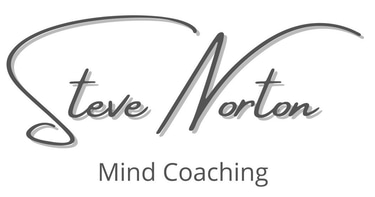Understanding Health Anxiety: Causes, Effects, and How Hypnotherapy Can Help
Steve Norton, anxiety specialist can illuminate your health anxiety using hypnotherapy to remove the core cause of health and any other anxiety.
8/28/20244 min read


What is Health Anxiety and Why Do People Overthink Symptoms?
Health anxiety, often referred to as hypochondria, represents an obsessive and irrational concern about one's health. Unlike general anxiety or typical health concerns, health anxiety leads individuals to frequently misinterpret normal bodily functions or minor symptoms as indicators of severe medical conditions. This persistent worry can result in substantial distress and impact daily life.
Individuals with health anxiety exhibit a range of symptoms. Commonly, they might repeatedly check their body for signs of illness, seek frequent reassurance from medical professionals, or spend excessive time researching diseases online. Such behaviors stem from an intense fear of having or developing a serious illness, despite medical reassurance to the contrary. This condition differs distinctly from general anxiety as it specifically fixates on health-related fears rather than broader worries about various aspects of life.
Typical behaviors and thought patterns associated with health anxiety include catastrophizing, where minor symptoms are interpreted as severe ailments, and selective attention, where the individual becomes hyper-focused on specific bodily sensations. For instance, a person might perceive a slight headache as a sign of a brain tumor or a minor chest pain as an imminent heart attack. These exaggerated thought patterns perpetuate the cycle of fear and anxiety, further entrenching the sufferer's beliefs.
Several risk factors and psychological mechanisms underlie health anxiety. Catastrophizing involves the individual envisioning the worst possible outcome from a minimal symptom, amplifying fear and stress levels. Selective attention drives the person to become acutely aware of bodily sensations, often heightening or misinterpreting them as signs of serious conditions
Psychological and emotional factors also contribute to this anxious overthinking. People with a history of trauma, high-stress levels, or a family background of health-related concerns are more likely to develop health anxiety. Additionally, cognitive patterns, such as an inherent pessimism or a heightened sense of vulnerability, play a crucial role.
In summary, health anxiety embodies an excessive and unfounded worry about health that disrupts normal functioning. Recognizing the typical behaviors, thought patterns, and risk factors associated with this condition is imperative to understand how it differs from general anxiety and to develop effective coping strategies.
The Root Causes of Health Anxiety: Where Does It Stem From?
Health anxiety, also known as hypochondriasis or illness anxiety disorder, can be attributed to a multitude of factors. Identifying the root causes is crucial for understanding why certain individuals exhibit a heightened concern for their health. Genetic predispositions play a significant role, with research indicating that those with family members suffering from anxiety disorders may have a higher tendency towards developing health anxiety themselves. Environmental influences, such as the behavior and attitudes of parents or guardians, can significantly shape one's perception of health and disease. For instance, an overly cautious or health-obsessed caregiver may inadvertently pass on these anxieties to their children.
Early childhood trauma is another critical factor. Traumatic experiences, especially those related to health or medical issues, can instill lifelong anxieties regarding personal well-being. This can manifest in adulthood as an amplified sense of vulnerability and fear concerning health-related matters. Research in cognitive-behavioral models identifies dysfunctional thought patterns as a key component. The inclination to misinterpret normal bodily sensations as signs of serious illness is common among those with health anxiety. This misinterpretation often leads to a vicious cycle of constant worry and frequent medical checkups, further entrenching the anxiety.
Psycho-dynamic theories also provide valuable insights. These theories posit that unresolved unconscious conflicts from early life experiences may find an expression in health anxiety. A person may redirect their unresolved emotional issues onto their physical health, thereby experiencing anxiety as a more socially acceptable outlet. Additionally, factors such as cultural emphasis on health and wellness or the stigmatization of sickness, further contribute to the development of health anxiety
Understanding these root causes helps to delineate why some individuals are more inclined to health anxiety than others. By integrating genetic, psychological, and environmental perspectives, we can better tailor therapeutic approaches to aid those suffering from this debilitating condition.
How Hypnotherapy Can Help Alleviate Health Anxiety
Hypnotherapy is a complementary therapy that can provide significant relief for individuals suffering from health anxiety. This therapeutic approach leverages guided relaxation, intense concentration, and focused attention to induce a state of heightened awareness, also known as a 'trance.' In this trance state, individuals may exhibit increased receptivity to suggestions, which can be invaluable in reshaping their negative thought patterns and behaviors associated with health anxiety.
The primary objective of hypnotherapy in the context of health anxiety is to interrupt and alter the cycles of obsessive thinking and fear. During Steve's hypnotherapy sessions, several techniques are employed to achieve this aim. One key technique includes guided relaxation, Steve helps the individual reach a profound state of physical and mental relaxation, diminishing the immediate sensations of anxiety. Positive suggestion is another crucial technique utilized, where the offers constructive and calming statements that the subconscious mind can adopt, aiding in the reduction of anxiety symptoms. Visualization strategies are also frequently employed, helping individuals mentally rehearse scenarios in a controlled and positive manner, which can significantly mitigate their anxiety triggers. Steve also uses his own extremely effective version of eye movement therapy to remove the cause of anxiety.
Research and case studies have underlined the efficacy of hypnotherapy in managing health anxiety. For instance, findings indicate that individuals who undergo hypnotherapy often display a marked reduction in anxiety levels and report improvements in their overall well-being. These anecdotal and empirical evidences point towards hypnotherapy as a promising intervention for those grappling with health anxiety.
For those considering hypnotherapy, it is crucial to seek out a qualified hypnotherapist, such as Steve.
To book a consultation with Steve, Click Here
